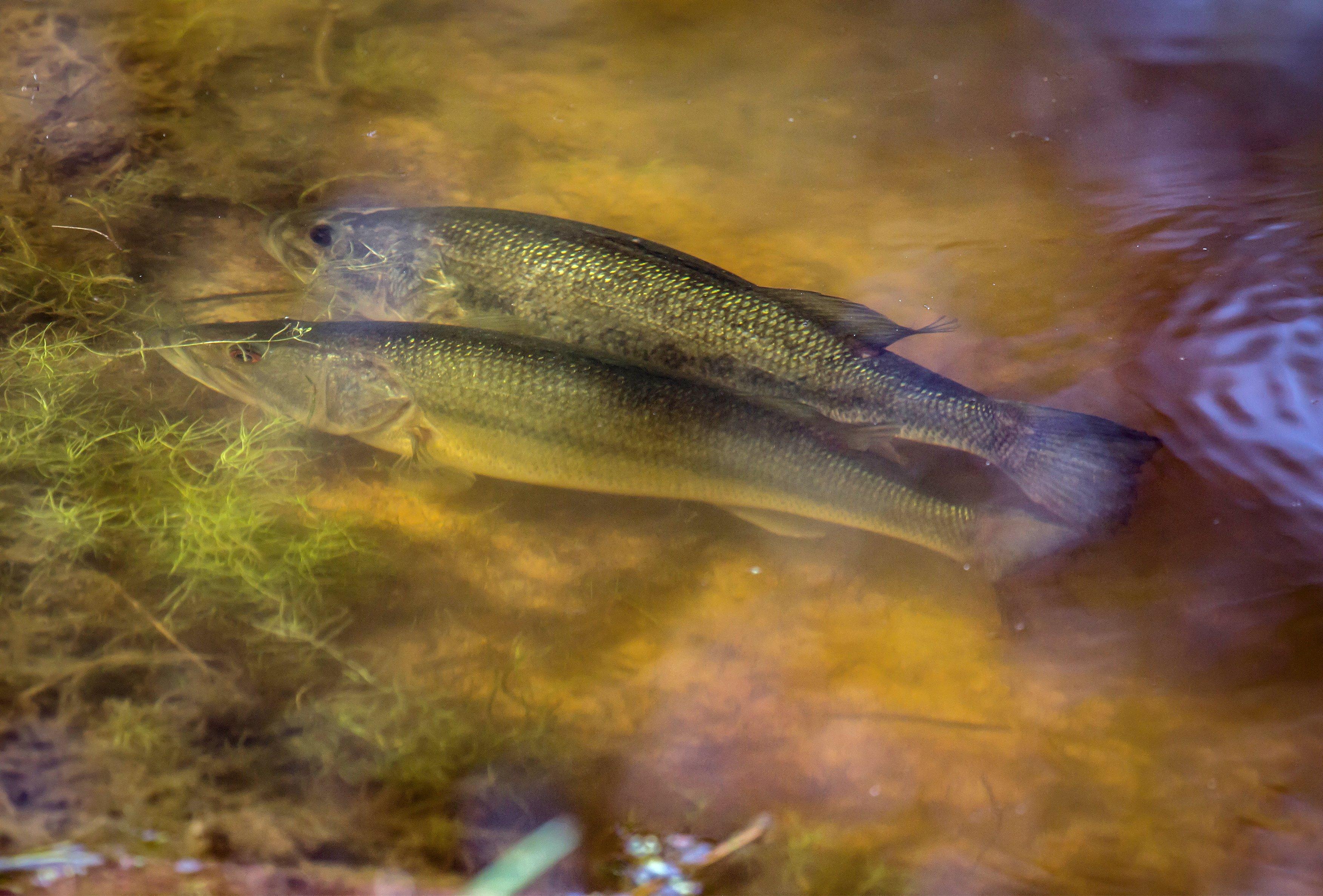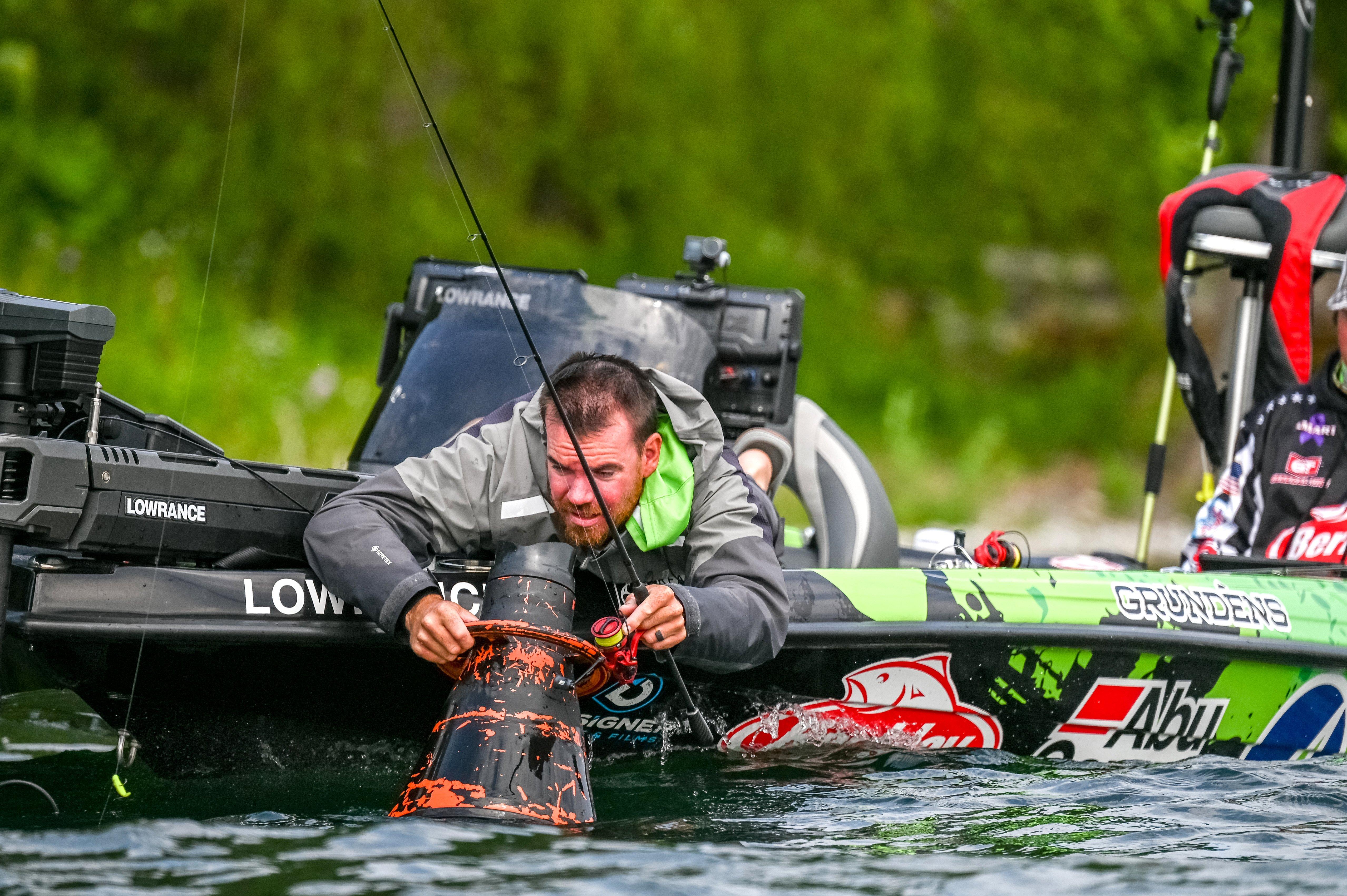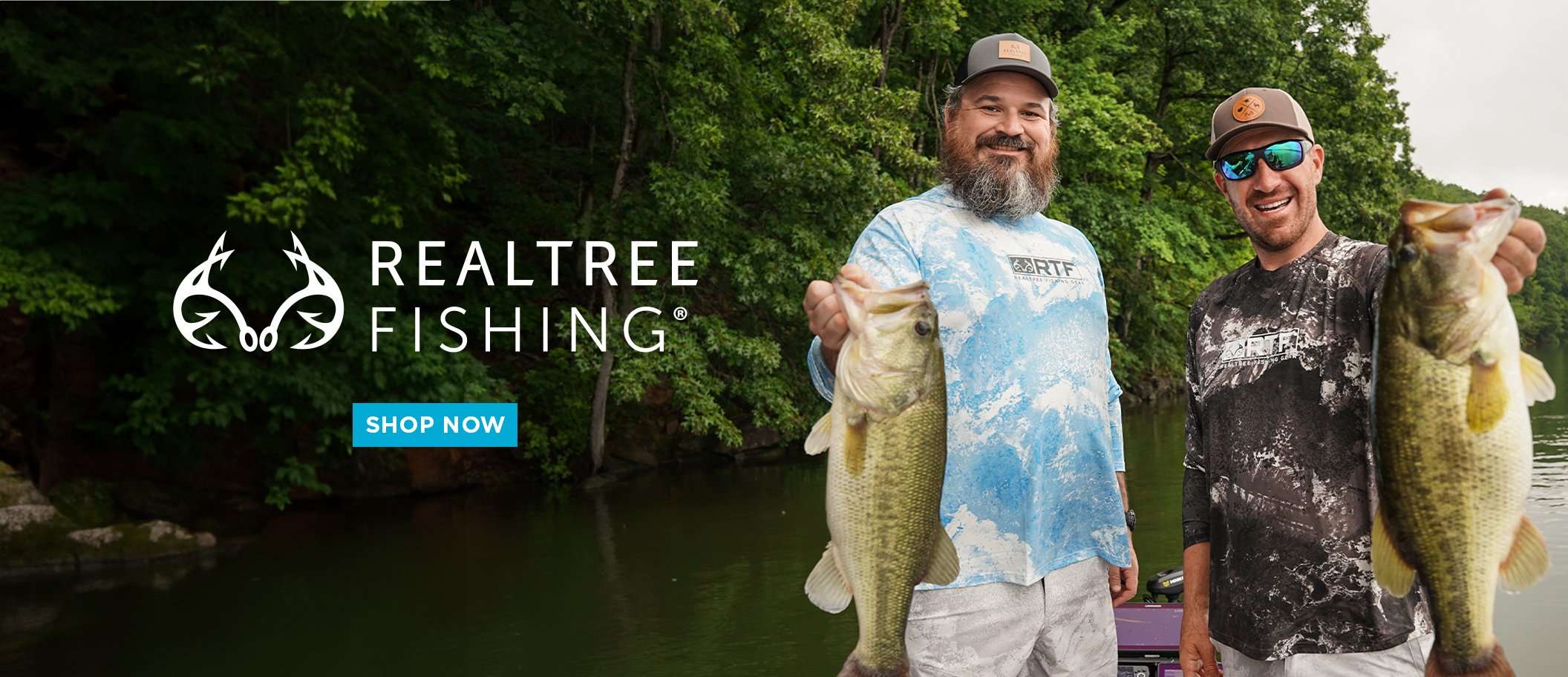New equipment has made modern anglers more efficient than ever. Does that mean we should revisit this long-debated bass fishing topic?

Spawning bass create nests and then guard eggs and fry from predators. Image by L. James Chance
Spring is a magical time of year for bass and bass fishing. A sense of renewal overcomes the angler immersed in a beautiful backdrop. Flowers bloom, waters warm, and bass come to the bank.
Nothing can prepare you for the sight of a gigantic spawning bass. Whether it’s a 6-pound smallmouth in Michigan or a double-digit bucket-mouth in Texas, it’s exhilarating to see the quarry clearly and up close. For many anglers, shallow, spawning bass represent a viable target. Bass that are actively guarding nests often don’t strike out of hunger but might attack lures that get too close to the bed. Sight-fishing for spawning bass often means provoking them into striking as much as fooling them.
Don’t Miss: How to Fish for White Bass, the Other Spring Panfish
But is it something bass fishermen should be doing at all? That question has long been hotly debated in our sport, and it’s a topic that always gets rehashed this time of year. Does fishing for spawning bass hurt the efforts of the individual fish, or the overall population of the lake? Is it unethical? And do released bass continue to perform their reproductive duties? The answers to all of the above are complex, and not always clear.
For starters, it’s important to understand that we can’t compare bass, or bass fishing, to fishing efforts for other species. This is due to two major factors:
1. Most bass are released (unlike species such as crappie, walleye, or redfish).
2. Bass receive more fishing pressure than any other fish in America.
Those two factors add weight to each side of the argument. Overall, bass populations are robust in many areas. With live release rates topping 90% on most waters, bass don’t have a lot of threats. Usually, low bass populations are a result of poor habitat or low recruitment.

Older studies have suggested that fishing during the spawn has little impact on bass populations, but they didn't account for today's highly effective techniques. Image by Realtree
Recruitment is the word fisheries managers use when talking about spawning success. This equates to how many young fish are produced by adult fish. For a population of bass to remain robust, recruitment must be successful, and those young fish must grow to be adults.
Some studies have suggested that reducing the success of individual bass beds does not hurt the population overall. Instead, recruitment suffers most when spawning habitat is affected. Siltation in lakes and rivers can cause this, as can fluctuating water levels, vegetation spraying, shoreline construction, and excessive boat traffic. Weather events like poorly timed storms, floods, heavy wave action, and droughts all affect fish spawns.
Don’t Miss: Simple Crappie Ramen
Still, it doesn’t take a biology degree to understand that removing bass from their beds has the potential to impact things, too. Bass are a nesting fish, meaning they construct and defend their beds. Bass eggs and fry have many predators, and removing adult fish from a nest leaves the eggs and fry exposed to those predators.
It’s also worth mentioning that most of the studies on bass fishing the spawn were done years ago, long before fishing pressure was as heavy or efficient as it is today. And let’s face it, there’s a big difference between bass fishing today and the way Grandpa did it. With advanced boats, trolling motors, sonar, and equipment, a good bass angler can catch most of the visible bass in any given area. With more boats on the water, another capable angler is right behind and does the same. How much of that can the bass withstand? On several occasions, I’ve talked with anglers whose home lake faced tremendous fishing pressure during the spawning season, and the fishing suffered for years afterward. The obvious conclusion is that the success of the spawn declined with fishing pressure. Recruitment dropped.
A few other variables should also be considered. Even if bass are released, they’re not always handled properly. Photos, videos, and hero shots on social media promote holding bass out of the water far too long. Even if those released fish survive, how quickly are they returning to the nest? Is it in time to protect it from being raided by predators?

Fishing for spawning bass is a personal choice wherever it's legal. The author prefers to leave visible, bedding fish alone. Image by Grit Media
In the past, resource managers prohibited bass fishing in some locales in spring. But that restriction has been removed in many places, as anglers have lobbied for extended seasons. Does that affect the overall bass population numbers? It’s hard to say, as few long-term studies have been done.
Finally, ethics play a factor. As a young angler, I heard a valuable proverb:
“Once you truly appreciate bass, fishing for them during the spawn is simply out of the question.” It took me a while to understand this, but one day it simply set in. When you watch a big bass cautiously approach her bed, tirelessly work to defend it from predators, and then finally relax for a few brief seconds to distribute her precious eggs, catching that fish by simply aggravating it into striking seems trivial. By then, you’ve already experienced the best part of bass fishing.
Don’t Miss: How to Freeze and Store Fish For Maximum Flavor
Our final takeaway is this: Fishing for spawning bass continues to be a personal decision for the angler. Complex studies on the effects of fishing for spawners have not been done in recent times. Little value exists in the reports for yesteryear. True, we release these fish, but fishing pressure is higher now than ever, and increasing. Personally, I refrain from fishing for visible, bedding fish. Convincing a big bass to strike a lure out of hunger or aggression is far more satisfying to me than pestering one to bite. Besides, I’m haunted by proverbs, and I find many of them coming true the older I get.












